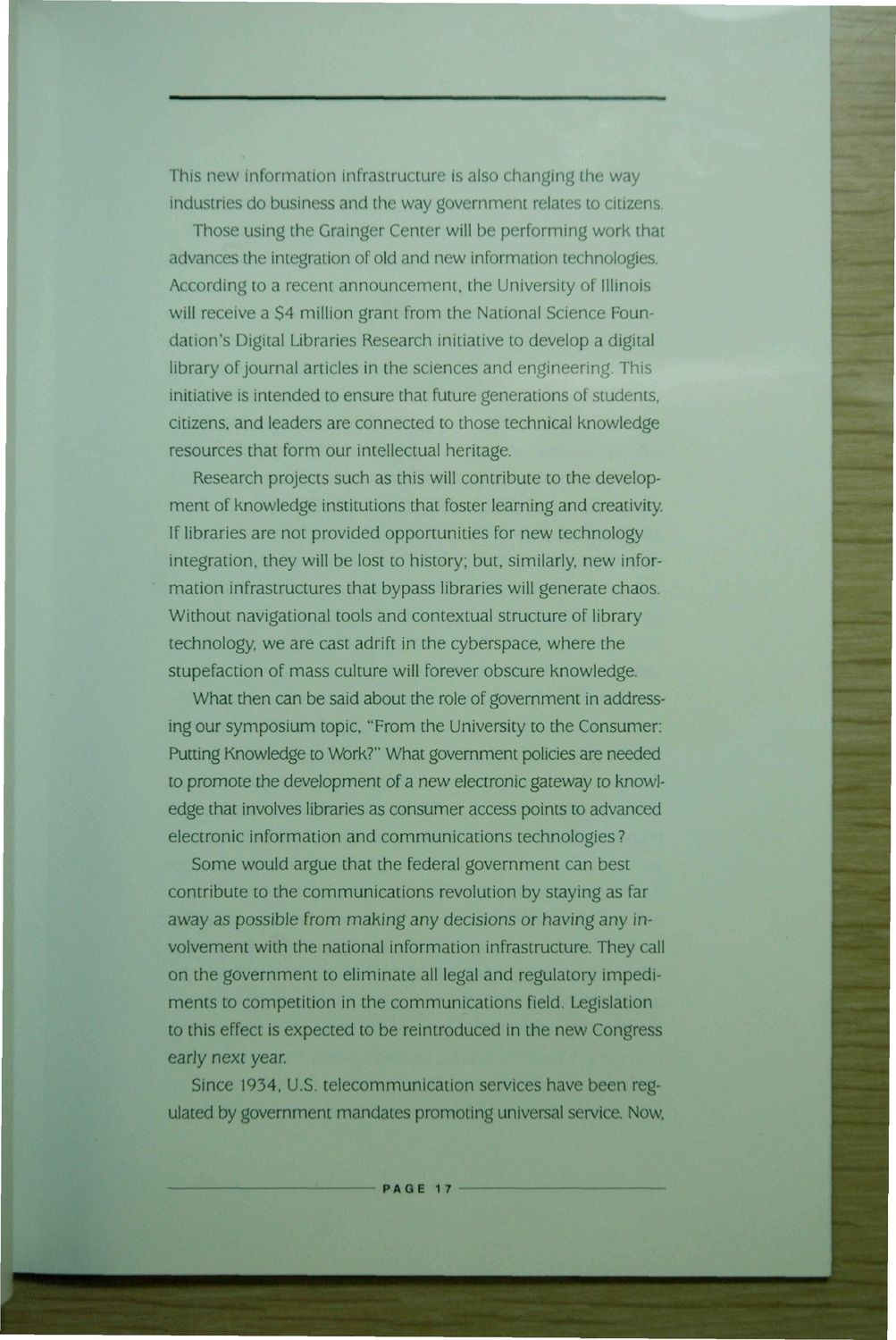| |
| |
Caption: Dedication - Grainger Engineering Library Symposium
This is a reduced-resolution page image for fast online browsing.

EXTRACTED TEXT FROM PAGE:
This new information infrastructure is also changing the way industries do business and the way government relates to citizens. Those using the Grainger Center will be performing work that advances the integration of old and new information technologies. According to a recent announcement, the University of Illinois will receive a $4 million grant from the National Science Foundation's Digital Libraries Research initiative to develop a digital library of journal articles in the sciences and engineering. This initiative is intended to ensure that future generations of students, citizens, and leaders are connected to those technical knowledge resources that form our intellectual heritage. Research projects such as this will contribute to the development of knowledge institutions that foster learning and creativity, if libraries are not provided opportunities for new technology integration, they will be lost to history; but, similarly, new information infrastructures that bypass libraries will generate chaos. Without navigational tools and contextual structure of library technology, we are cast adrift in the cyberspace, where the stupefaction of mass culture will forever obscure knowledge. What then can be said about the role of government in addressing our symposium topic, "From the University to the Consumer: Putting Knowledge to V\fork?" What government policies are needed to promote the development of a new electronic gateway to knowledge that involves libraries as consumer access points to advanced electronic information and communications technologies? Some would argue that the federal government can best contribute to the communications revolution by staying as far away as possible from making any decisions or having any involvement with the national information infrastructure. They call on the government to eliminate all legal and regulatory impediments to competition in the communications field. Legislation to this effect is expected to be reintroduced in the new Congress early next year. Since 1934, U.S. telecommunication services have been regulated by government mandates promoting universal service Now,
| |